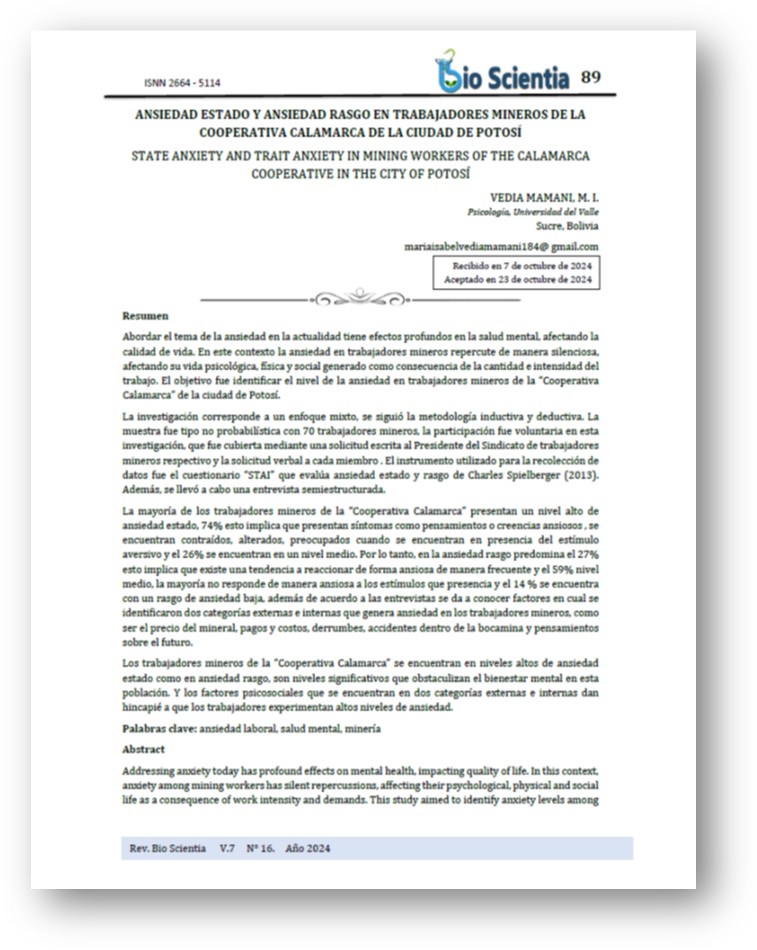STATE ANXIETY AND TRAIT ANXIETY IN MINING WORKERS OF THE CALAMARCA COOPERATIVE IN THE CITY OF POTOSÍ
Keywords:
work anxiety, mental health, miningAbstract
Addressing anxiety today has profound effects on mental health, impacting quality of life. In this context, anxiety among mining workers has silent repercussions, affecting their psychological, physical and social life as a consequence of work intensity and demands. This study aimed to identify anxiety levels among workers at the "Cooperativa Calamarca" mining cooperative in Potosí city. The research followed a mixed-methods approach using inductive and deductive methodology. A non-probabilistic sample of 70 volunteer mining workers participated after obtaining written consent from the Mining Workers' Union president and verbal consent from each member. Data was collected using Spielberger's (2013) STAI questionnaire measuring state and trait anxiety, along with semi-structured interviews. Results showed 74% of miners presented high state anxiety levels, exhibiting symptoms like anxious thoughts, tension, and worry when facing adverse stimuli, while 26% showed moderate levels. Regarding trait anxiety, 27% showed frequent anxious reactions, 59% moderate levels (not typically responding anxiously to stimuli), and 14% low trait anxiety. Interview data revealed external and internal anxiety-inducing factors including mineral prices, payments and costs, cave-ins, mine accidents, and future-related thoughts. Workers at "Cooperativa Calamarca" exhibit high levels of both state and trait anxiety, significantly compromising their mental wellbeing. The psychosocial factors identified (categorized as external and internal) highlight that workers experience high anxiety levels.



